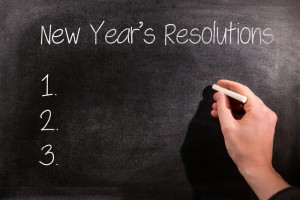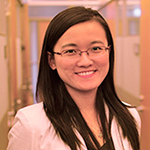 As the new year approaches, many of us set goals: becoming fit, saving money, getting organized. But is January 1 the only day of the year when people feel motivated to take on those challenges?
As the new year approaches, many of us set goals: becoming fit, saving money, getting organized. But is January 1 the only day of the year when people feel motivated to take on those challenges?
New research led by Hengchen Dai, PhD, assistant professor at Olin Business School at Washington University in St. Louis, shows that a temporal landmark — an event such as a birthday, holiday or the new year — increases a person’s intentions to pursue a new goal.
When a temporal landmark feels more like the beginning of a new time period, it is more likely to encourage individuals to start goal pursuit.
“Even when an otherwise ordinary day is simply highlighted as the beginning of a new time period, people experience increased motivation to act on their goals that day,” Dai said.
Dai’s research also found that strengthened motivation to begin pursuing aspirations during a temporal landmark originates in part from the psychological disassociation these landmarks induce from a person’s past, imperfect self.
In short, people want to move away from their former selves and start anew. A temporal landmark — a birthday, the beginning of a season, an anniversary or a new year — can disconnect people from their old selves, making them feel more confident and providing the impetus needed to make self-improvements.

“People often look for opportunities to start with a clean slate,” she said. “Events that are embedded with more culture, religious or personal significance may be more likely to psychologically disconnect people from their past selves and let them put their imperfections behind.”
Dai’s co-authors are Katherine L. Milkman, PhD, associate professor at the Wharton School at the University of Pennsylvania, and Jason Riis, PhD, lecturer at the Wharton School.
Dai can be reached for comment at hdai@wustl.edu. Interviews also may be scheduled by contacting Erika Ebsworth-Goold at Washington University’s Office of Public Affairs at eebsworth-goold@wustl.edu or 314-935-2914.